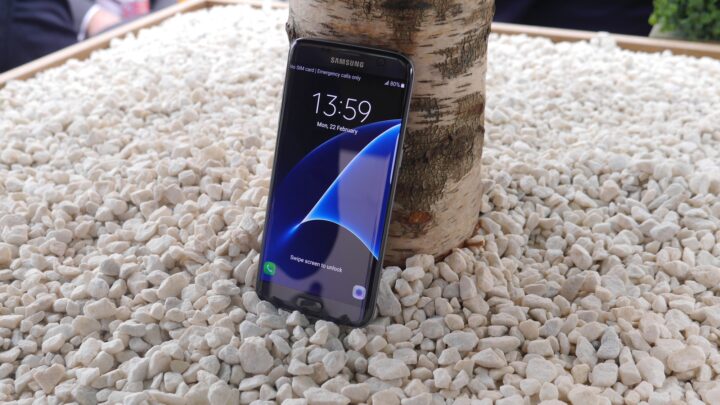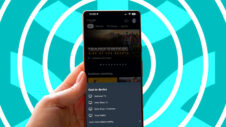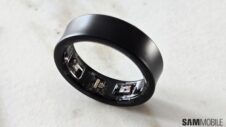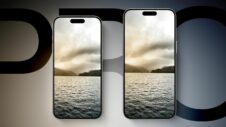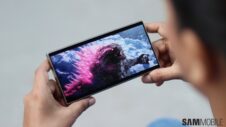Well, the Galaxy S7 and the S7 edge are now official. While the announcement was a grand success and the hype generation has been pretty decent so far, the smartphone’s real test is yet to come. Starting March 11, when the handset starts reaching customers’ (and our) hands, we’ll know for sure if Samsung has a winner on its hands.
As is the case with every Samsung flagship launch, it’s customary for us to compare it with the iPhone flagship that’s in circulation at the time. In this case, it is the Apple iPhone 6s. Well, how do the two smartphones compare in terms of hardware, software and most of all, user likability?
The iPhone 6s is no doubt a decent device with features like Force Touch and that 12MP camera that’s impressed most of us. However, what Samsung has here is in a different league altogether. I know what you’re thinking, “You write for SamMobile, you have to be biased towards Samsung.” Well, it’s not exactly that simple.
Read More: Top five reasons why you should get the Samsung Galaxy S7
I owned an iPhone 6s (briefly) before eventually surrendering it to return to my beloved Android flagship. So you will have to realize that I’m perhaps the most impartial person to talk about how the iPhone fares in comparison to the newly released Samsung flagship. But don’t take my word for it, I have good reason to believe that.
The Design
Have you seen the curves on the Galaxy S7 edge? Yeah, they’re no different from the Galaxy S6 edge or the Galaxy S6 edge+, but that’s not to say it’s not a distinguishable feature in the mobile industry today. As far as design is concerned, I don’t think there’s any handset out there that even comes close to the Galaxy S7 edge and its refined, polished exterior. Advantage Samsung.
Features
This has been Samsung’s strong suit for a long time now. I remember thinking to myself about some of the mundane Samsung features from a few years ago that were merely party tricks and wouldn’t serve users in the long run. Well, thanks to the company’s continued insistence on those features and perfecting them over time, we think the Galaxy S7 reigns supreme with regards to onboard features. One thing I liked about Samsung’s offerings this year is that they didn’t jump to release a feature that was being pushed by other OEMs (like the USB Type-C port). Instead Samsung decided to actually think about its practical use for the consumers.
Speaking of practical features, the Galaxy S7 comes with one of the biggest and most sought after features today. Yes, we’re talking about the microSD card slot. This was surprisingly missing from the Galaxy S6 range last year, but Samsung was wise enough to learn from its mistakes. Now compare this with a 16GB iPhone 6s, which will cost you a bomb and leave you with little to no usable storage and you’ll know what I mean.
Last but not the least, the IP68 certified water and dust resistance. Well, this again is something that has made the Galaxy S7 a strong contender for the best flagship of the year crown, even though we’re just two months into the year. (And no, the iPhone 6s is not water resistant, in case you were wondering). We will certainly see more innovations from Samsung later this year when the successors to the Galaxy Note 5 and possibly the Galaxy S6 edge+ are unveiled by the manufacturer.
Display
This is an area where Samsung has had an advantage over the competition for a prolonged period, thanks to its extensive use of AMOLED panels in smartphones and even tablets since recently. It is being said that Apple’s LCD panels might be a thing of the past with the company supposedly contemplating the switch to OLED panels with this year’s iPhone models. The pressure on Apple has seemingly increased significantly since the release of the Galaxy S7, which is currently packing the best mobile display in the market, as per DisplayMate’s new report.
I won’t even begin to talk about the endless stream of support for newer hardware like the Gear VR, Gear 360 as well as the range of wearables that the company is offering. So taking all these factors into account, it’s a little hard to call the iPhone 6s an actual competitor at this point.
Sure, the sales figures might suggest otherwise. But if history has taught us something, it’s that not every good phone will be a crowd favorite. And I for one have never believed that the sales figures of a mobile device are an accurate metric of a smartphone’s capabilities.
So regardless of whether the Galaxy S7 and the S7 edge will sell in millions or not, both of them are great devices. And that’s what really matters, right?

